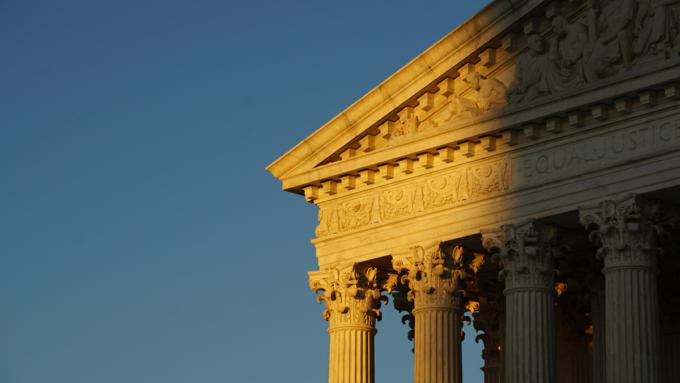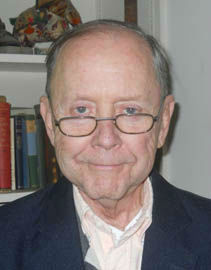
Culture
It is often said that the Supreme Court now has a six-member prolife majority -- Chief Justice John Roberts and Associate Justices Clarence Thomas, Samuel Alito, Neil Gorsuch, Brett Kavanaugh, and Amy Coney Barrett. But only four justices' votes are needed for a case to be accepted for review. Why hasn't Dobbs made the grade yet with at least four of those six?

Shaw
Imagine trying to follow a game whose rules and objectives you don't know and whose players aren't letting on. That is approximately how things now stand where the Supreme Court, President Joe Biden, and the issue of abortion are concerned. And if that sounds complicated, that's because it is.
Start with the court. Since early last fall, it has had before it a petition to review a case that many people believe provides a good place for it to begin its long-awaited scaling back of decisions like 1973's Roe v. Wade and 1992's Planned Parenthood v. Casey that opened the floodgates to legalized abortion.
The case -- Dobbs v. Jackson Women's Health Organization is its name -- involves a Mississippi law to ban virtually all abortions after the 15th week of pregnancy. In December 2019 the Fifth Circuit U.S. Court of Appeals upheld a lower court ruling overturning the law, and the Supreme Court is being asked to review the appeals court's decision.
Week after week since then, the court has listed Dobbs among the cases the justices would be looking at in the next closed-door conference at which they would decide which cases they would -- or wouldn't -- review. And week after week, when the orders list was published, Dobbs has been missing, neither accepted nor rejected.
It is often said that the Supreme Court now has a six-member prolife majority -- Chief Justice John Roberts and Associate Justices Clarence Thomas, Samuel Alito, Neil Gorsuch, Brett Kavanaugh, and Amy Coney Barrett. But only four justices' votes are needed for a case to be accepted for review. Why hasn't Dobbs made the grade yet with at least four of those six?
At this point, turn to the other player in this game, President Biden. During last year's campaign, pro-abortion activists in his party pressured candidate Biden to say that, if elected, he would support court-packing legislation to expand the membership of the court by adding enough new justices to out-vote the prolife majority.
But Biden, apparently not keen on court-packing, instead promised to create a commission to consider proposals for changing the way court operates. Court-packing will be among them, but so will other ideas, such as 18-year non-renewable terms for justices.
Biden has now established the commission, a 36-member body of law professors and retired judges and given it six months to do its job. There is no telling what it will say -- if anything -- about court-packing or anything else.
Just here it is important to note another player who joined this game only recently -- Supreme Court Justice Stephen Breyer. In a two-hour lecture at the Harvard law school, the 82-year-old Breyer, one of the court's liberals and a reliable pro-choice vote, strongly opposed court packing, saying such blatant politicizing would undermine public willingness to accept the court's decisions. In view of this opposition from an eminent pro-choice source, Biden has even stronger grounds for saying no to 'packing,' when and if the need arises.
Against this background, the pro-lifers on the court would seem to be safe in accepting Dobbs or some other abortion-related case for review, without the threat of court-packing hanging over their heads. If they do, that could mean oral argument in the fall and a decision before the summer of 2022.
It will be apparent that much of the foregoing is conjecture. But conjecture is the most anyone can do concerning the outcome of a game whose rules and objectives are known only to its players -- and they aren't talking.
- Russell Shaw is the author of more than twenty books. He is a consultor of the Pontifical Council for Social Communications and served as communications director for the U.S. Bishops.
Recent articles in the Culture & Events section
-
Boston and the nation respond to the San Francisco Earthquake of 1906Thomas Lester
-
See you in the storyLaura Kelly Fanucci
-
'Dignitas' and the mediaRussell Shaw
-
Scripture Reflection for April 14, 2024, Third Sunday of EasterDeacon Greg Kandra
-
St. Helena's House is established in the South EndThomas Lester


















